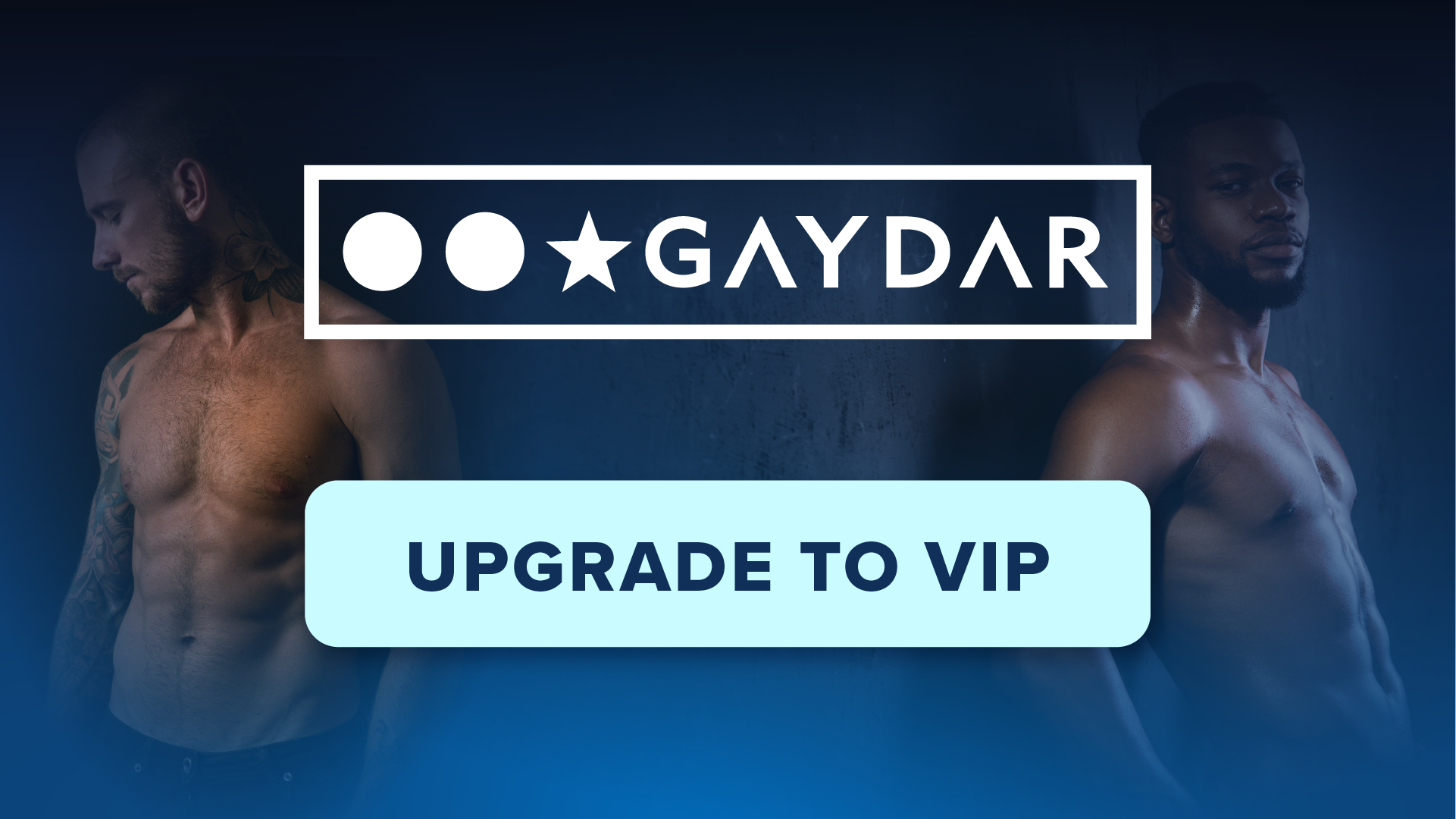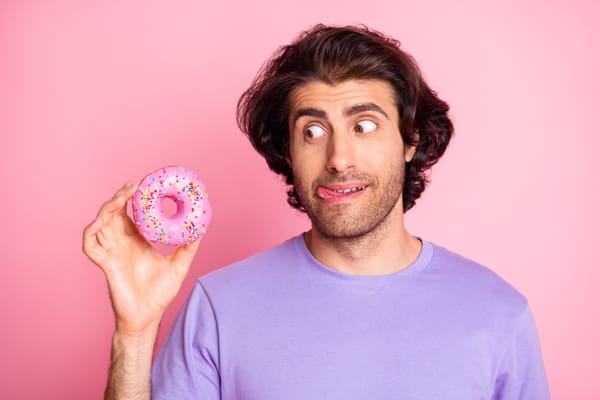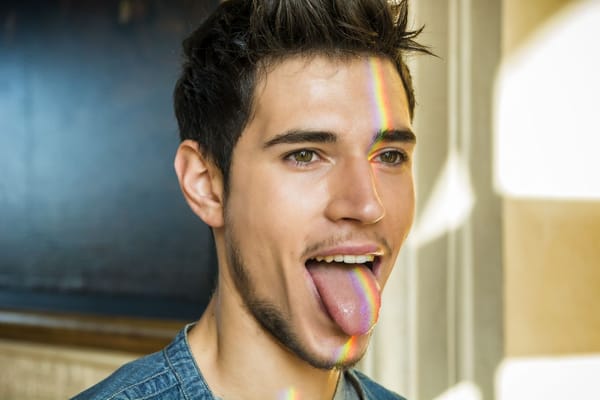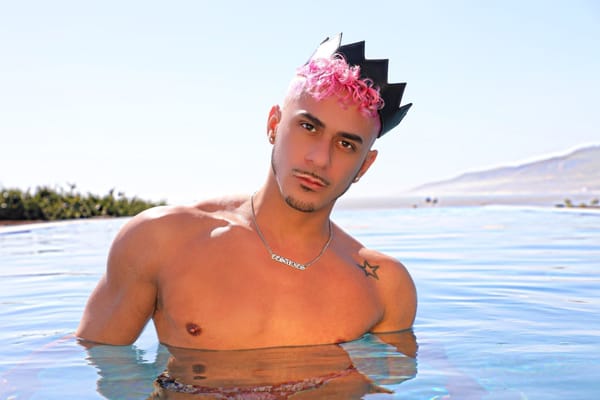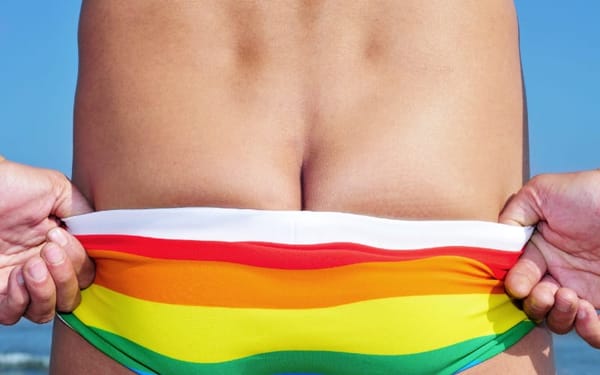Theatre-watch: Seconds to Midnight
What would you say to friends when the world is about to end?
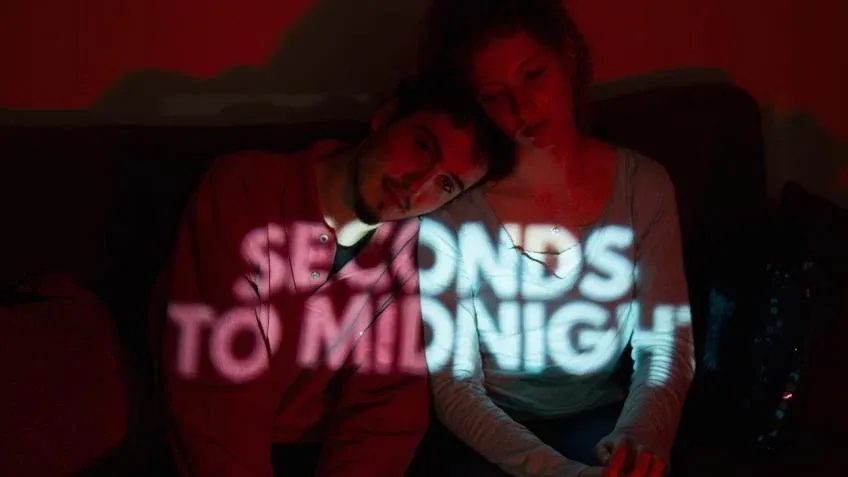
What would you want to say to your best friend if the world was about to end?
Exploring queer friendship, platonic love and nuclear anxiety, Seconds to Midnight asks what happens in a world with no consequences. Diving into the parallels between beginnings and endings, we follow Jo and Eddie through the first seven minutes of their friendship and the final seven hours of the world.
We caught up with the show's director, Katie Kirkpatrick, for a behind-the-scenes look at the production.
How did the creative process unfold? The play was written by Jessica Tabraham and then further developed in workshops with the cast - plus there was research with young queer people? Was it challenging to pull all of that together into a final script?
Yes!
I had the idea for the piece in autumn last year, and then built out the concept and storyline. We held a couple of R&D sessions with other queer theatre-makers to gather ideas, and then commissioned Jessica to turn it into a full script.
Once we had a few scenes, we workshopped them with our cast and ran some improvisation around them to expand the characters and the world they live in.
With lots more discussion, this was then turned by Jessica into the finished script, which is still edited and shaped every time we rehearse.
It was definitely tricky trying to get in all the things we wanted to, but the experience overall was a really fun one, allowing for lots of creativity and collaboration.
The end-of-the-world device adds some intensity to any friendship dynamic. Is it conceivable that queer people might respond differently at the end of the world than straight people?
I think it’s less that, and more just that that kind of high-stakes scenario forces you to question which relationships you value most.
There’s something specific about the intimacy of queer friendships that we wanted to convey, and it’s this that draws our characters Jo and Eddie to one another when they could have instead been spending the time with romantic interests or with family.
With queer community and social spaces difficult to sustain in an increasingly online world, is it becoming more difficult for queer women and queer men to connect with each other and share experiences as friends?
I would definitely say so. I was super-lucky to come into my queerness in a British university city where pretty much all the queer events weren’t gendered, but so many seem to now be specifically for all sapphic or all men.
While there’s absolutely a place for these events, when there’s nothing else it greatly reduces the opportunities for community and friendship, as well as reducing queer events to just a chance to get with someone.
Queer spaces that are for everyone are more important than ever - I’m really excited to attend lots of great socials, mixers, and club nights while in Edinburgh!
Has the process of bringing this production to the stage helped you to rethink any of your friendships, or confirmed who you would want by your side at the end of the world?
Absolutely! In our first R&D workshop we asked a lot of tricky questions that we realised we weren’t sure we could answer ourselves.
The whole process of making the show has revealed more and more parallels between the characters we’ve invented and our own lives and relationships. In fact, when Jessica sent us a first excerpt of the script, we were both thrown by how similar it was to dynamics we had with friends, despite us not having explained these dynamics to our writer.
I think what makes the questions of who you would want by your side, or what you would say or do with them, are almost impossible to answer, and it’s this that makes them so fun to make theatre about.
We’re taking a situation that feels pretty unimaginable and going, hey, this is possible, what would you actually do?
What do you hope that people feel when they come to see Seconds to Midnight?
As cliche an answer as it might be, we really want audiences to feel something, anything, and just allow themselves to have that experience.
We’re hoping they’ll both laugh and cry, and most of all that they’ll walk away with a newfound appreciation for the platonic relationships in their lives.
When is it on?
Dates: 31 July - 26 August
Venue: Pleasance Courtyard
Tickets: www.pleasance.co.uk
